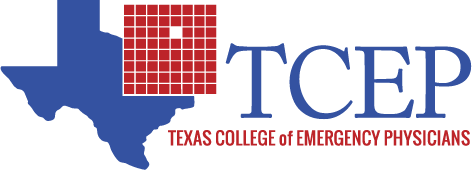Texas Legislative UpdateDecember 2021
Can you believe that in two weeks, 2019 will have been THREE years ago? We have gone through so much together since that time, and yet the work is never complete and time never slows down. The most important work that TCEP is currently engaged in pertains to the rules and regulations that resulted from the federal No Surprises Act (NSA). As you may be aware, once a law is passed through Congress (or a state legislature), it is then interpreted into rules and regulations by federal or state agencies – you can think of rules as important tools that government agencies can use to implement a law. Therefore, though law passage is exciting, that only signals the beginning of our policy grunt work. In the case of the NSA, the rules that were written seem in direct conflict with the intent of the law. Importantly, while the NSA law requires arbitrators to take into consideration certain important criteria that determine fair payment in a physician’s practice, the rules propose to pragmatically allow health plans to determine the fair rate for service. There are current and expected lawsuits on the state and national level to combat this threat to our professional interests, of which TCEP remains apprised and engaged as necessary. Looking back at 2021 in Austin, the 87th Texas Legislature completed one regular session and three special sessions. During that time, they accomplished their constitutional requirement related to redistricting. Redistricting is the process by which state legislators redraw legislative, congressional, and State Board of Education districts every 10 years. They redrew the districts based on data collected during the 2020 Census. The COVID-19 pandemic led to a delay in the release of 2020 census data, and since the data was not available before the end of the regular session, legislators took up and passed the necessary redistricting bills during the 3rd Called Special Session. Governor Greg Abbott signed those redistricting bills into law on October 25. There are over 30 incumbent legislators looking to make a change. These changes are either retirements or seeking a different, most often higher office. Some are looking to move from the House to the Senate, from the legislature to a statewide position, and others are looking to leave the state legislature for Congress. Whatever the reasons may be, it is not unusual to see a high volume of legislative turnover following the redistricting process. December 13 was the deadline for candidates to officially declare the office they are seeking. The new districts are set to be used for the first time in the 2022 primary (March) and general (November) elections, barring any court interventions. However, there are multiple legal challenges to the new maps working their way through the judicial system. If legal challenges are successful, the impact to legislative districts and the timing of the primary and general elections could be significant. Our lobbyists at IPA will continue to monitor the situation and provide relevant updates. TCEP’s PAC (EMPACT) will work with IPA on its donation strategy, but one of the most useful steps you can take immediately is by giving to our PAC (https://www.tcepconnect.org/donate-to-empact-today-) so that we may continue supporting legislators who support good policies. Finally, I would like to announce that I hope to resign as Chair of the Government Relations Committee by 2023, though I plan to stay involved and helpful in any way that I can. If you are interested in this personally and professionally fulfilling appointment, please contact Ms. Beth Brooks at [email protected]. Wishing you and your family a happy and healthy holiday season! |

